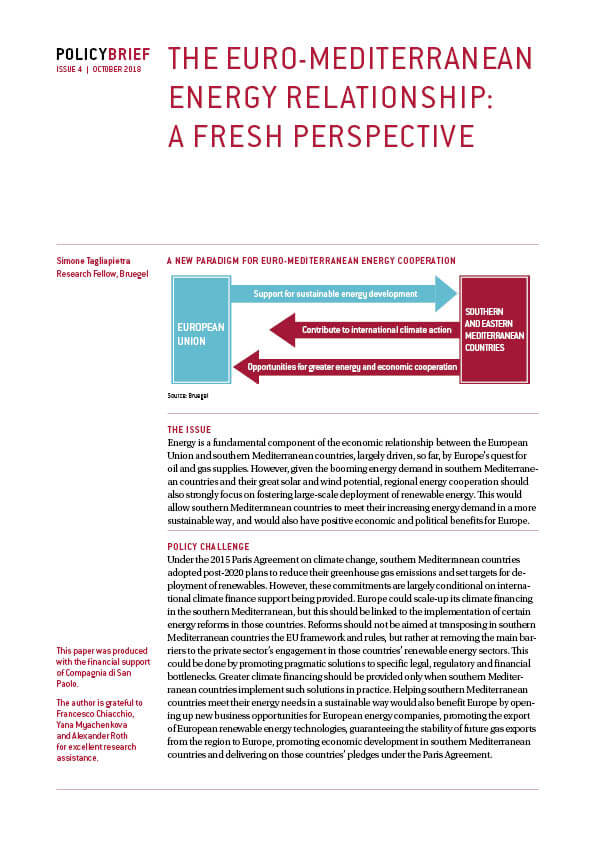Policy Brief
The Euro-Mediterranean energy relationship: a fresh perspective
The author analyses the current renewable energy development in Southern Mediterranean countries (SMCs) and proposes a climate financing strategy that retreats from the Eurocentric approach. Not only will it allow the region to meet its energy demand sustainably, it will also benefit the EU, both in economic and political terms.
This paper was produced with the financial support of Compagnia di san Paolo and presented in the framework of the Policy responses for an EU-MENA shared future event, jointly organised with the OCPPC.
The issue
Energy is a fundamental component of the economic relationship between the European Union and southern Mediterranean countries, largely driven, so far, by Europe’s quest for oil and gas supplies. However, given the booming energy demand in southern Mediterranean countries and their great solar and wind potential, regional energy cooperation should also strongly focus on fostering large-scale deployment of renewable energy. This would allow southern Mediterranean countries to meet their increasing energy demand in a more sustainable way, and would also have positive economic and political benefits for Europe.
Policy challenge
Under the 2015 Paris Agreement on climate change, southern Mediterranean countries adopted post-2020 plans to reduce their greenhouse gas emissions and set targets for deployment of renewables. However, these commitments are largely conditional on international climate finance support being provided. Europe could scale-up its climate financing in the southern Mediterranean, but this should be linked to the implementation of certain energy reforms in those countries. Reforms should not be aimed at transposing in southern Mediterranean countries the EU framework and rules, but rather at removing the main barriers to the private sector’s engagement in those countries’ renewable energy sectors. This could be done by promoting pragmatic solutions to specific legal, regulatory and financial bottlenecks. Greater climate financing should be provided only when southern Mediterranean countries implement such solutions in practice. Helping southern Mediterranean countries meet their energy needs in a sustainable way would also benefit Europe by opening up new business opportunities for European energy companies, promoting the export of European renewable energy technologies, guaranteeing the stability of future gas exports from the region to Europe, promoting economic development in southern Mediterranean countries and delivering on those countries’ pledges under the Paris Agreement.










